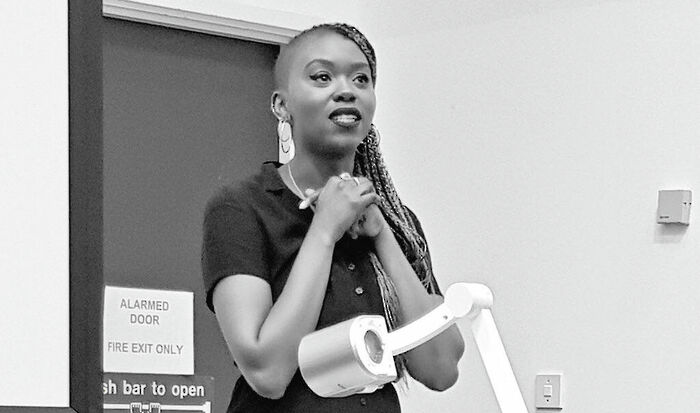Feminists must defend the need for proof beyond reasonable doubt
Changing the standard of proof for disciplinary procedures would be wrong, argues one student

On May 1st, the Senate House discussion in Cambridge will consider the proposal that the standard of proof in University disciplinary proceedings be changed from ‘beyond reasonable doubt’ to ‘balance of probabilities’. Because of its relevance for sexual assault procedures, this is a change that the CUSU Women’s Campaign has spent months fighting for – to much acclaim. Their open letter gathered over 700 signatures.
Sexual assault has a long and difficult history; across the UK today, around half of all women have experienced some form of sexual harassment. It is imperative that universities do all they can to protect their members from the physical and mental horror of sexual violence. As Vice-chancellor Stephen Toope correctly pointed out when the University’s Breaking the Silence campaign was launched in 2017, Cambridge must take the lead in targeting sexual violence by updating rules and procedures.
In disciplinary procedures run by the University, possible sanctions include temporary or permanent expulsion. As Law fellow Dr Freer told Varsity last Friday, there is a “real possibility that the proceedings at the University will then be used in a later criminal investigation, if one occurs”.
It would, therefore, be negligent to argue that a university panel – by virtue of not being a court – can hold itself to significantly weaker standards
But criminal investigations will not always follow University proceedings. There are good reasons for this, including that University procedures are assumed to involve less stress and trauma than a fully-fledged criminal trial. But through its disciplinary procedure, the University – like a criminal court – can impose long-term sanctions with irreversible effects. For example, it is able to permanently identify perpetrators as sexual offenders. This power is more than appropriate given the horrific, traumatising effects of sexual violence. It also means that decisions taken by the University panel in the formal complaints procedure are extraordinarily relevant, and must be beyond reproach.
Sexual violence often happens in environments where proof ‘beyond reasonable doubt’ is more difficult than in other circumstances: complainant and defendant are often alone, and evidence is hard to procure. In a situation already fraught with extreme stress, this leaves victims in a particularly difficult position, which is why the establishment of thorough support networks is crucial. It is also why any disciplinary body must ensure that whatever evidence may be available is indeed secured.
But I cannot forget that in dubio pro reo (innocent until proven guilty) is a fundamental tenet of any free society. The idea that the criminal justice system could give up this principle is chilling: such a development would lay defendants open to arbitrary sentencing without due process. Building a system of criminal law on the foundations of equity for everybody, regardless of background, circumstance, or crime, has taken us centuries. Perhaps we have become slightly complacent about the guarantees that the rule of law provides, but in truth these principles are of paramount importance. They must be protected.
A university is not a court of law but is treated as such in the framework of disciplinary procedures. It is capable of dispensing sanctions with very real and permanent effects. And the results of disciplinary procedures carried out by a university are liable to become relevant in any subsequent criminal proceedings. It would, therefore, be negligent to argue that a university panel – by virtue of not being a court – can hold itself to significantly weaker standards. Those with the power to pass judgment must be held to the highest standard of justice; there can be no exceptions.
We should not allow the very real necessity to combat sexual violence more effectively and more efficiently to obscure our understanding of fair trial. Due process matters as much as ever; it must work in conjunction with better support systems, more accessible complaint and disciplinary procedures, open conversations, the elimination of shame, and free access to information. Sexual violence is an area replete with emotion and a history of injustice. Using the horror of sexual violence as an excuse to destroy fundamental building blocks of a free and fair justice system is perhaps backed by good intentions, but fundamentally wrong.
Amendment on 11th March 2019: this article was updated to remove the name of the author out of welfare concerns
 News / Clare Hall spent over £500k opposing busway 24 December 2025
News / Clare Hall spent over £500k opposing busway 24 December 2025 Comment / The ‘class’ of Cambridge24 December 2025
Comment / The ‘class’ of Cambridge24 December 2025 News / Caius mourns its tree-mendous loss23 December 2025
News / Caius mourns its tree-mendous loss23 December 2025 Comment / Yes, I’m brown – but I have more important things to say22 December 2025
Comment / Yes, I’m brown – but I have more important things to say22 December 2025 News / Girton JCR publishes open letter expressing solidarity with Palestine25 December 2025
News / Girton JCR publishes open letter expressing solidarity with Palestine25 December 2025










